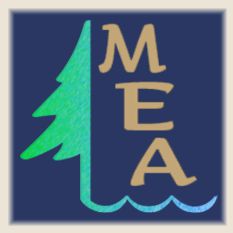The MEA artists are

Karen Bowers, Mary‑Ellen Campbell, Maeve Croghan, Eleanor Harvey, John Hewitt, Julie Higgins, Debra Beck Lennox, Deborah Nord, Janis Porter, Paul Reiber, Bob Rhoades

Karen Bowers, Mary‑Ellen Campbell, Maeve Croghan, Eleanor Harvey, John Hewitt, Julie Higgins, Debra Beck Lennox, Deborah Nord, Janis Porter, Paul Reiber, Bob Rhoades
